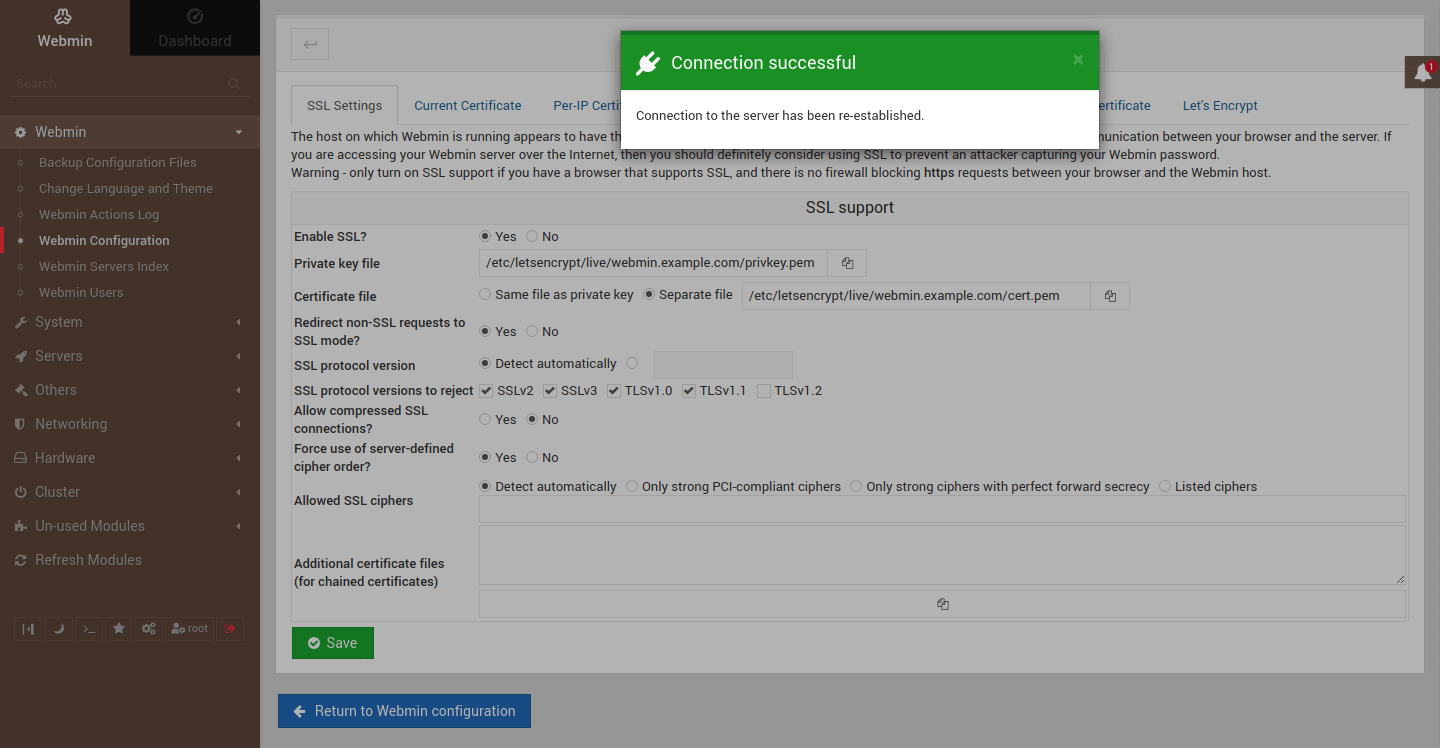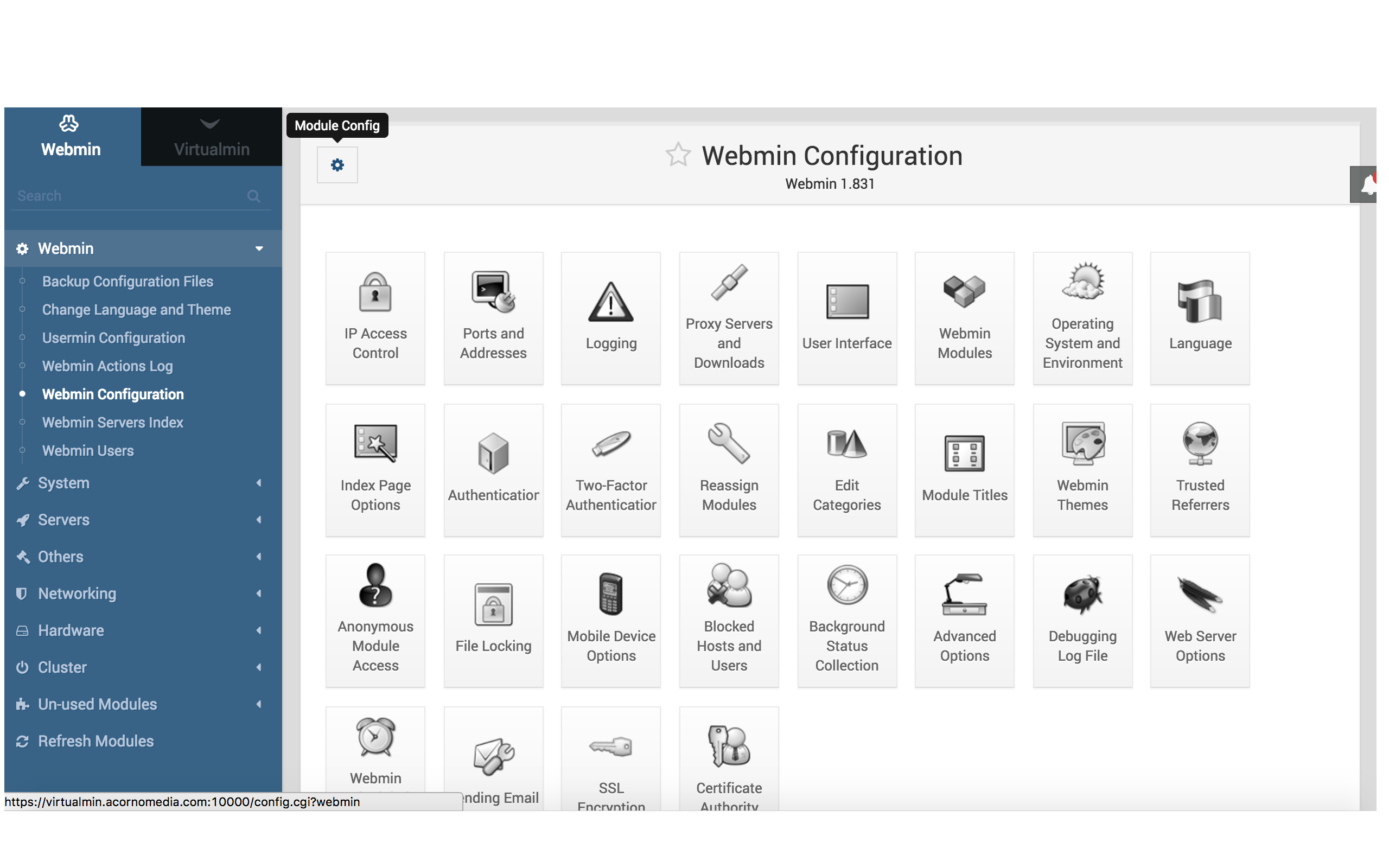

The cookie is used to store the user consent for the cookies in the category "Performance". This cookie is set by GDPR Cookie Consent plugin. The cookie is used to store the user consent for the cookies in the category "Other. The cookies is used to store the user consent for the cookies in the category "Necessary". The cookie is set by GDPR cookie consent to record the user consent for the cookies in the category "Functional". The cookie is used to store the user consent for the cookies in the category "Analytics". Whenever updates are available it is signaled in dashboard. These cookies ensure basic functionalities and security features of the website, anonymously. The dashboard above shows a bunch of relevant parameters of the server that webmin runs on, like cpu, memory and disk usage (the three circle gauges) operating system, etc. Necessary cookies are absolutely essential for the website to function properly. If you like to install and update Webmin via Yum package manager, create the /etc//webmin.repo file.
#Webmin installer how to#
In this guide, we touch base on how to install Webmin on CentOS Linux.


Additionally, you can execute sysadmin tasks such as: It also provides basic information such as the Operating system of the server, hostname, kernel version, uptime, Load average, running processes, and processor information to mention a few. Webmin provides an intuitive and simple UI that provides metrics such as CPU, RAM, and Disk utilization. Webmin is a free and open-source front-end monitoring and administration tool that helps Linux users have a glance at various system metrics and perform administration tasks without the need of running commands on the terminal. Keeping an eye on your system’s performance is one of the essential tasks that any Linux user should undertake from time to time.This helps in diagnosing any bottlenecks that are likely to impact performance.


 0 kommentar(er)
0 kommentar(er)
